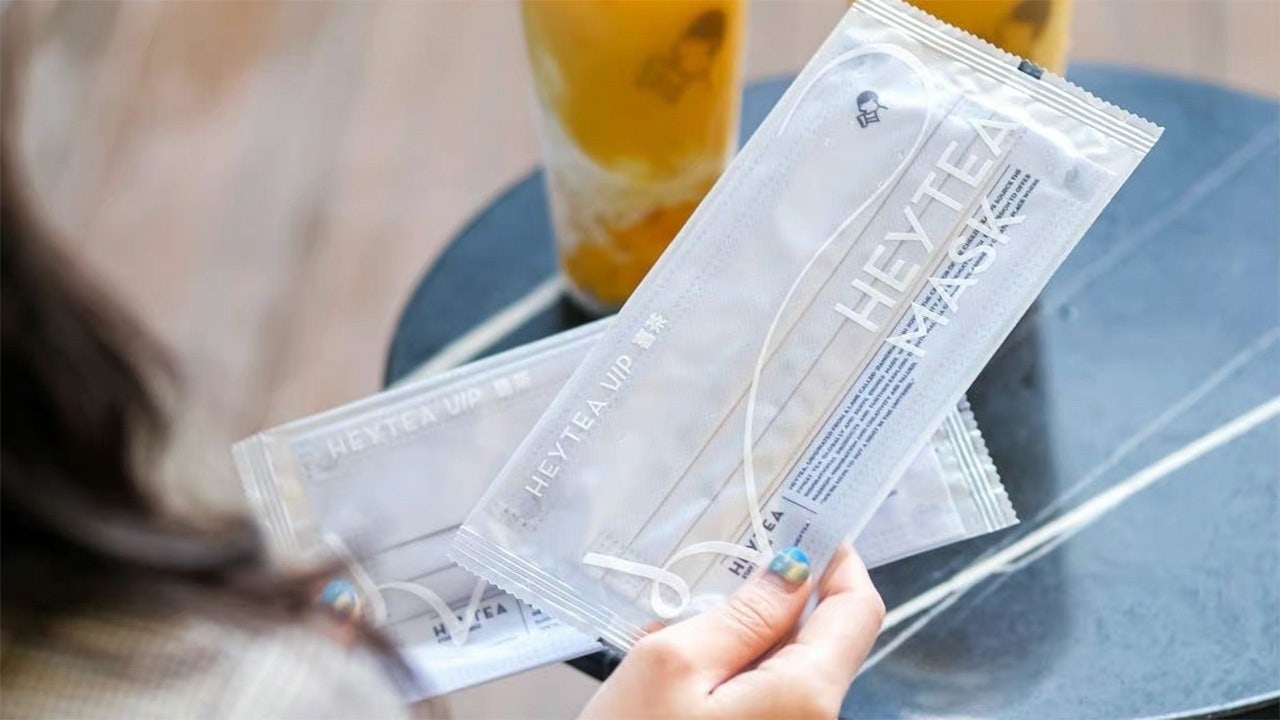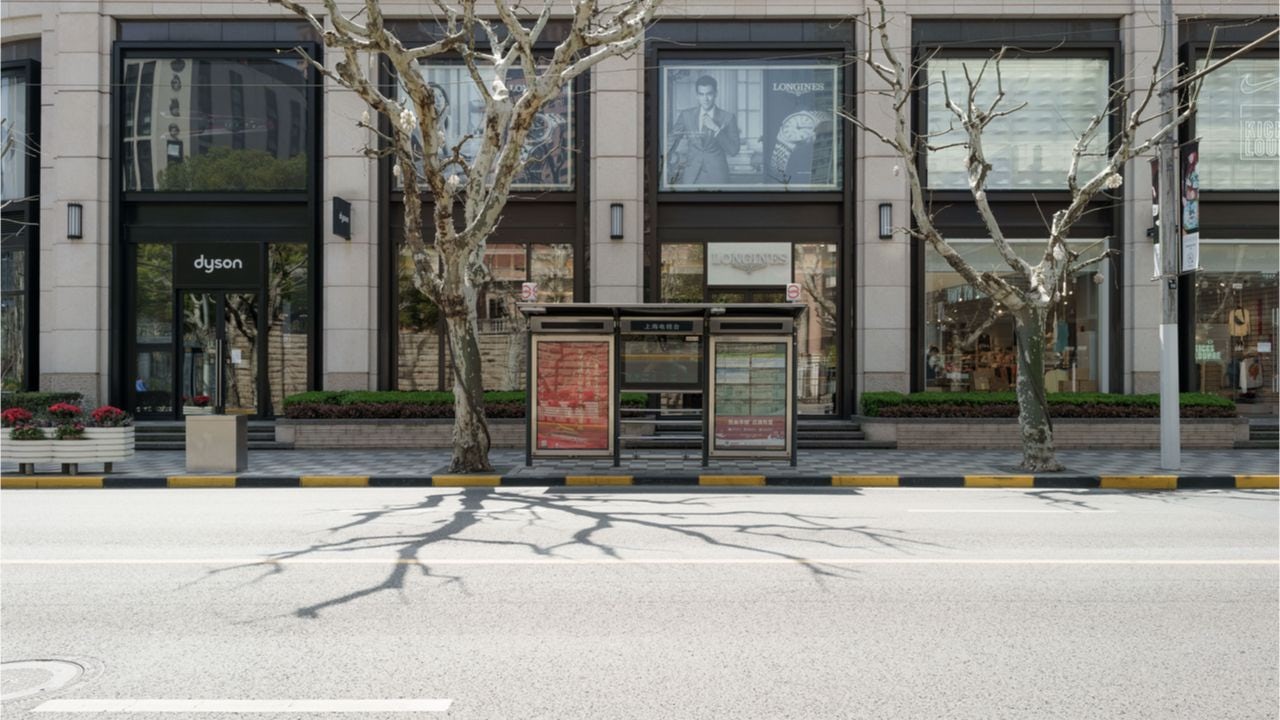What’s a mindful way to navigate the sale of luxury goods when customers are struggling to get the most basic items? This is the dilemma now facing countless companies doing business in China.
Compared to the first wave of pandemic lockdowns in 2020, China’s latest wave has impacted luxury’s more bankable higher-tier cities, like Shanghai and Beijing, and is much more stringent.
This time, even e-commerce has been affected due to the closure of warehouses and ongoing struggles with deliveries. Add to that, the majority of luxury brands — both domestic and international — are located in these main cities, which means not only consumers are affected, but also the companies themselves, rendering them with limited mobility and a host of other concerning issues.
Naturally, this uncertainty around COVID-19 restrictions has been reflected in financial results: Kering Group listed China’s lockdown as a major negative factor during its April 21st earnings call. Among others, LVMH’s Asia segment (minus Japan) was also hit; sales only managed a single-digit rise of 8 percent. Meanwhile, Hermès admitted in a statement: “Since mid-March, Greater China has been penalized by new health restrictions and some store closures, particularly in Shanghai and Shenyang.”
Therefore, as Kering said, even though China's fundamentals are good, these lockdowns are making life “extremely difficult.” Given this, Jing Daily offers four soft power approaches for luxury to aid China during this difficult time.
Donating#
The first is, of course, the most obvious: pledging to causes in China as a way of generating goodwill. So far, few international brands have offered support in this way apart from Uniqlo, which gifted items of clothing to healthcare workers at various hospitals, and Pepsi, which has also donated products and encouraged employees to help in their communities.
Ashley Galina Dudarenok, Founder of ChoZan (超赞), says that aside from financial support, brands can offer rapid testing kits, discounts on selected items or services, or “anything that can make life a little easier on citizens. Being ‘human’ is important for luxury brands, like never before.” Here, local companies have taken the lead: Ele.me, Hema Fresh, and Cainiao sent 3,000 frontline workers to aid in the lockdown.
Popular bubble tea chain HeyTea and the Shenzhen government collaborated to increase the uptake in COVID-19 testing. Together they launched a co-operative testing point under the theme “Safe and Happy” which has received positive reactions from residents and netizens alike. Meanwhile, the Chaoyun Group's pet food brand, Stubborn Mouth, donated pet food and supplies to stray animals in Shanghai — a recent pain point for residents.
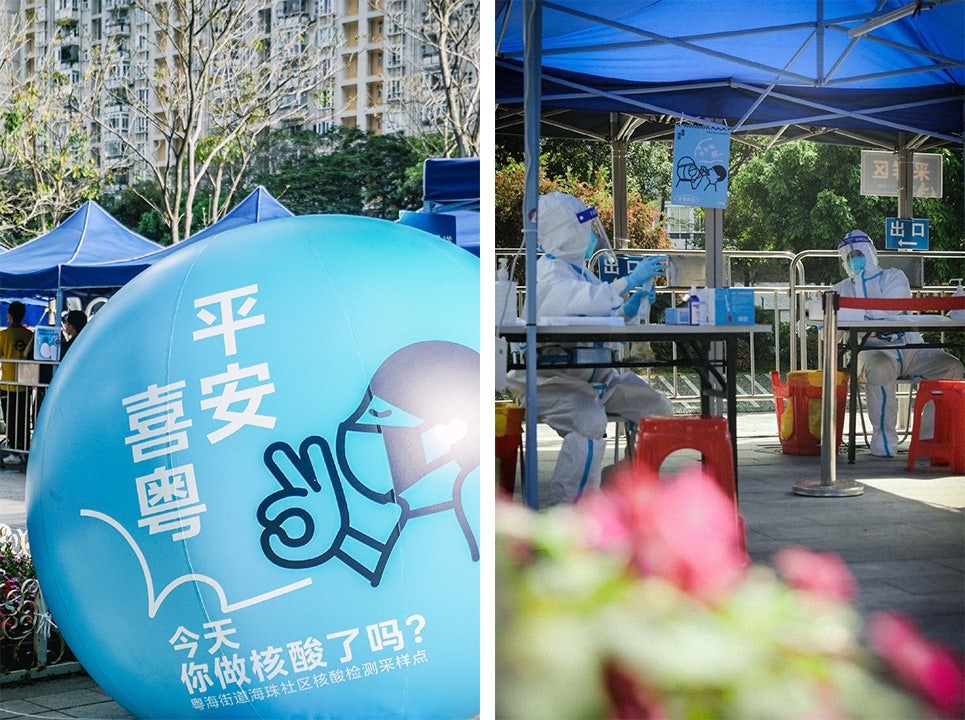
Showing Compassion#
According to Dudarenok, and other analysts, empathy and compassion is paramount to navigating this stage. “Not only does it showcase your brand in a much more positive light, but it is just the best thing any brand can offer in these times,” she continued.
This can be shown not only through physical goods but also through non-purchase related ways, such as via communication. Customer services, social media posts, and employee care can all be more considerate at this time.
It’s not always plain sailing though: some luxury names have been gifting elaborate food packages to their top clients as a way of showing empathy. However, Chloe Reuter from agency Gusto Luxe said to tread with caution here. “Images of the packages have been posted online, and this backfired as some clients who had not received them actively complained.”
Adjusting your message#
When people are concerned with ensuring they have the very basic necessities, it’s key for companies to err on the side of caution and not push too commercial of a message. “Brands must understand what is the key priority for their consumers, and be able to adapt their communications accordingly. Previously, we’ve seen brands offering concerts through social media, and exercise classes,” Reuter added.
In April, Fendi launched a series of courses that invited professional trainers from different fields, including sound meditation, exercise (pilates, Zumba and Yoga) and cookery (homemade Risotto) for clients. Prada launched an online club “Prada April List” on WeChat and Xiaohongshu. The company also invited four film directors, three singers, and three writers to recommend the top three picks in their respective fields. The membership-free online culture club serves as a form of support system for fans who appreciate the house’s alignment with high art and values.
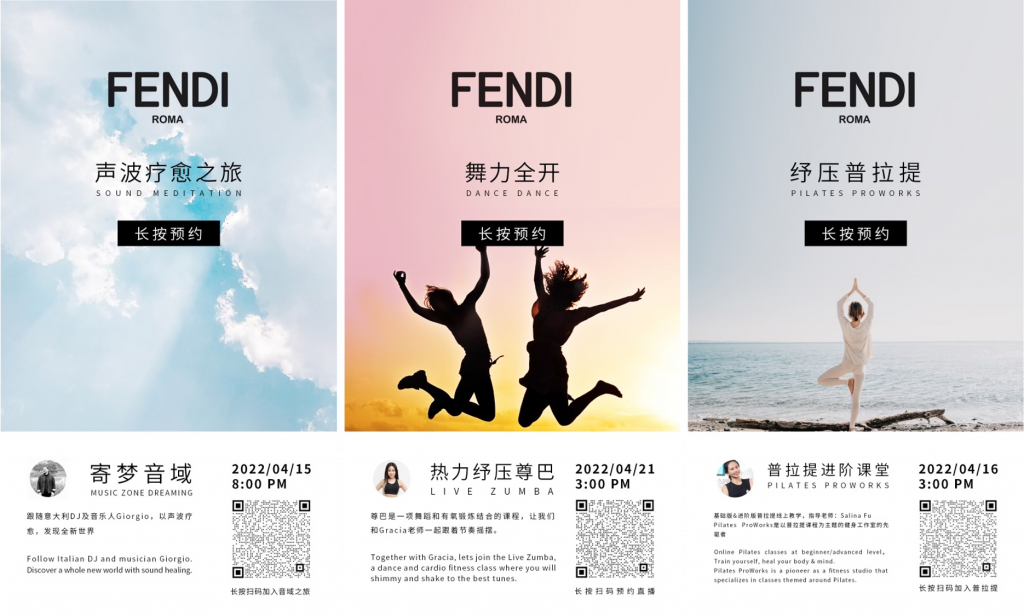
Tapping the metaverse and livestreaming#
Luxury is also being hit by a lack of new, first-time, customers. According to Antonello Germano, China Luxury Market Analyst at Daxue Consulting, this climate has resulted in a “slowdown of entry-level luxury consumers in China.” Considering that first-time consumers in 2021 accounted for about 50 percent of the overall luxury shoppers in China, luxury brands need to connect with potential customers and persuade them that buying luxury is still a good proposition.
“The metaverse and NFTs can be powerful tools for gaining visibility and catching Chinese Gen-Z’s attention,” Germano suggests, especially as citizens now have plenty of available screen time. Here too, local efforts have been interesting: In lieu of being postponed again, Shanghai Fashion Week collaborated with Xiaohongshu to create “digital collectibles” with nine designers including Masha Ma and zi ii ci ien. Shanghai duo Staffonly held an auction for their own NFTs through a bespoke virtual currency called “LikeCoin,” which received hundreds of bids. They told Jing Daily that winners used the NFTs as virtual avatars during lockdown.
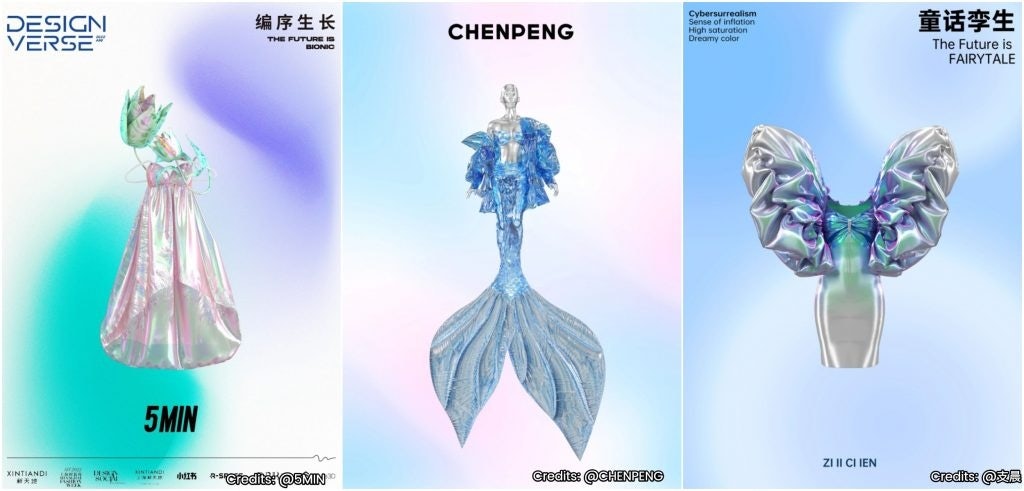
Finally, livestreamer Liu Genghong has unexpectedly grown his Douyin following to 53.8million, as his popularity skyrocketed due to unprecedented interest in his workout sessions. Lui and his wife, who also appears in his broadcasts, have just teamed up with shrewd sportswear company Fila — the first international sponsorship to nab the pair since the couple tapped the growing craze.
During this challenging time, brands need to be reactive to what’s happening on the ground in China — like Fila and Fendi — but also play the long game — like Prada. Navigating this difficult time properly should be of the utmost importance for luxury brands, helping them set up for future success post-COVID-19 — and beyond.
